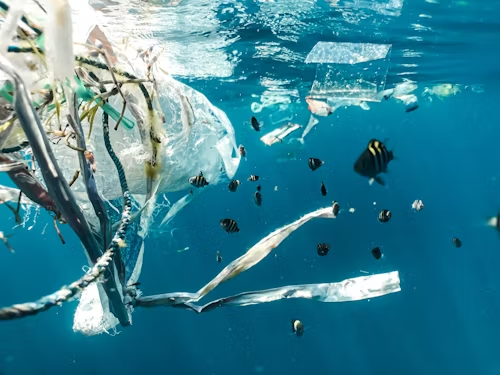Environmental responsibility is crucial for sustainable operations because businesses are being held more and more accountable for their ecological footprint. According to the Guardian, corporations and trade organizations have faced 230 climate-related lawsuits since 2015. Two-thirds of these have been initiated after 2020.
Legal repercussions for environmental violations can be harsh. These may range from heavy fines and litigations to reputational harm and potential criminal charges for executives.
Companies may face lawsuits for issues like pollution, improper garbage disposal, and non-adherence to permits and rules. Businesses must be diligent in their compliance as environmental laws continue to evolve. Such efforts are made to avoid expensive litigation and safeguard both their financial interests and the environment.
In this article, you will learn when businesses can face environmental litigations and the associated legal ramifications.
Violation of Environmental Regulations
Violating environmental standards can have serious legal repercussions for businesses. Government agencies may take enforcement action if important laws like the Clean Air Act, Clean Water Act, or Endangered Species Act are broken. These violations can lead to significant fines, court processes, and mandatory corrective measures.
Regulatory agencies such as the Environmental Protection Agency (EPA) possess the power to enforce fines and file lawsuits against offending companies. The seriousness of consequences frequently varies according to the type and extent of the violation. It also depends upon the company’s history of adherence.
The more complicated aspect of environmental regulations is that they are constantly evolving. According to Greenly, 2022 was a milestone year for environmental laws. Firstly, the Biden administration passed the Inflation Regulation Act to incentivize green businesses. Secondly, California implemented several measures to curb emissions.
Businesses must prioritize awareness and follow the applicable environmental obligations to avoid legal risks. This involves incorporating robust compliance programs and frequently evaluating their environmental practices.
Pollution and Contamination
Companies can face substantial legal consequences for pollution and contamination resulting from their activities. Legal actions may arise as a result of air, water, or soil pollution. These are caused by industrial operations, chemical spills, or improper disposal of hazardous materials.
In the US, several notable cases emphasize these issues. For instance, the Love Canal tragedy in New York involved chemical waste contamination of a residential area, which resulted in major litigation. Similarly, the Diamond Alkali Co. in New Jersey contaminated the Passaic River with chemicals used in Agent Orange production. This resulted in ongoing legal ramifications.
Another example is the AFFF controversy that included firefighter foam manufacturers like 3M, Tyco Fire Products, and DuPont. According to TruLaw, these companies have been held liable for firefighter health hazards and environmental harm. The latter has been caused due to spills contaminating water supplies in areas where AFFF is used.
While the case is still ongoing, the AFFF lawsuit settlement amounts are expected to be huge. Compensation for individuals suffering from diseases like cancer due to exposure to forever chemicals may reach millions. Likewise, local bodies may seek even bigger amounts due to widespread contamination.
Negligence in Waste Management
Waste management is a big industry in the US. According to Grand View Research, the market size of the industry in 2023 was estimated at $342.7 million. Further, it is expected to grow at an annual rate of 5.2% in the next six years. However, not all businesses understand the significance of waste management.
Ignorance in waste management can have a serious negative impact on the environment and lead to legal implications for companies. When companies fail to handle or dispose of waste properly, they risk polluting the soil, water, and air. As a result, all these actions can have serious consequences for public health and ecosystems.
Regulatory organizations may impose penalties, and affected parties can pursue lawsuits for harm. Companies must prioritize proper waste management practices to combat these legal challenges. This helps them to ensure compliance with environmental laws.
Harm to Public Health
Businesses are subjected to harsh legal consequences when their environmental footprint causes public health hazards. Sometimes, pollution can result in respiratory disorders, waterborne diseases, or other health problems. The aforementioned AFFF contamination has caused cancer among the exposed individuals. As a result, companies may face significant fines, penalties, and civil litigation.
Individuals or affected communities may bring class-action lawsuits to recover damages for pain and suffering, low wages, and medical costs. These legal processes can result in major financial liabilities and reputational harm for the responsible companies.
Moreover, regulatory bodies may impose harsh oversight. They may also order compulsory remediation efforts and even criminal charges against corporate executives in extreme cases. This is most likely to happen when corporations fail to consider the health effects of their products or waste materials.
Businesses should practice environmental compliance to manage these risks. Besides that, they should also implement strong pollution control measures, and immediately deal with any potential health hazards arising from their activities.
Impact on Wildlife and Natural Habitats
Businesses can face serious legal implications for operations that negatively impact wildlife and natural environments. Litigations may arise from deforestation, damage to ecosystems, or any injury to endangered species. These often result from the breaking of environmental protection laws designed to protect biodiversity.
BBC reported that the New York State sued PepsiCo recently for plastic pollution along the Buffalo River. The state claimed that the contaminants had polluted the river’s water and harmed the wildlife in the area. McDonald’s and Hershey’s were other leading brands named in the case, though PepsiCo was identified as the biggest culprit.
Businesses engaged in activities that endanger protected areas or species can suffer from penalties, legal action, and expensive cleanup costs. Such legal challenges highlight the significance of corporate responsibility in environmental stewardship.
Failure to Follow Environmental Permitting Processes
Failure to follow the correct environmental permitting procedures or breaking permit terms can have serious legal repercussions for businesses. Operational shutdowns, hefty fines, and legal action are likely. Regulatory bodies may issue hefty penalties, revoke existing permits, or mandate expensive remediation efforts.
Businesses found guilty may also face criminal charges, especially in cases of intentional non-compliance or repeated crimes. Additionally, companies operating without proper environmental evaluations risk harming their reputation and facing public insults.
As a result, they must prioritize obtaining and following all-important environmental permits. They should also conduct careful environmental impact assessments, and stay in compliance with permit conditions throughout their activities.
Frequently Asked Questions (FAQs)
What steps should a business undertake if it gets an environmental violation notice?
Upon receiving a violation notice, businesses should immediately review the charges, gather important documentation, and talk to legal counsel. They should also respond within the particular timeframe and address any compliance issues. Further, they should communicate with regulatory authorities to showcase a willingness to address the concerns efficiently.
How can a business showcase its dedication to environmental sustainability?
A business can showcase its commitment to sustainability by incorporating eco-friendly measures. Obtaining certifications (like ISO 14001), participating in community outreach, and transparently reporting its environmental performance are other steps. Regularly updating stakeholders on sustainability practices also fosters the company’s dedication to responsible environmental behavior.
Who is eligible to file an AFFF Lawsuit?
Exposure to Aqueous Film Forming Foam (AFFF) has been associated with fatal medical problems. People who have been exposed to it– and later suffered from specific health hazards are eligible to file an AFFF lawsuit. These include firefighters, military personnel, and the public exposed to PFAS-contaminated water.
Companies may face environmental lawsuits in several situations. These legal hurdles underline the significant importance of regulatory compliance and proactive environmental management for businesses across all fields.
Businesses can mitigate legal risks, safeguard their reputation, and contribute to environmental protection by following these tips. Ultimately, a commitment to sustainable measures and environmental stewardship avoids costly legal processes. It also positions companies for prolonged success in a highly eco-conscious global market.

 Join Daily Trust WhatsApp Community For Quick Access To News and Happenings Around You.
Join Daily Trust WhatsApp Community For Quick Access To News and Happenings Around You.

